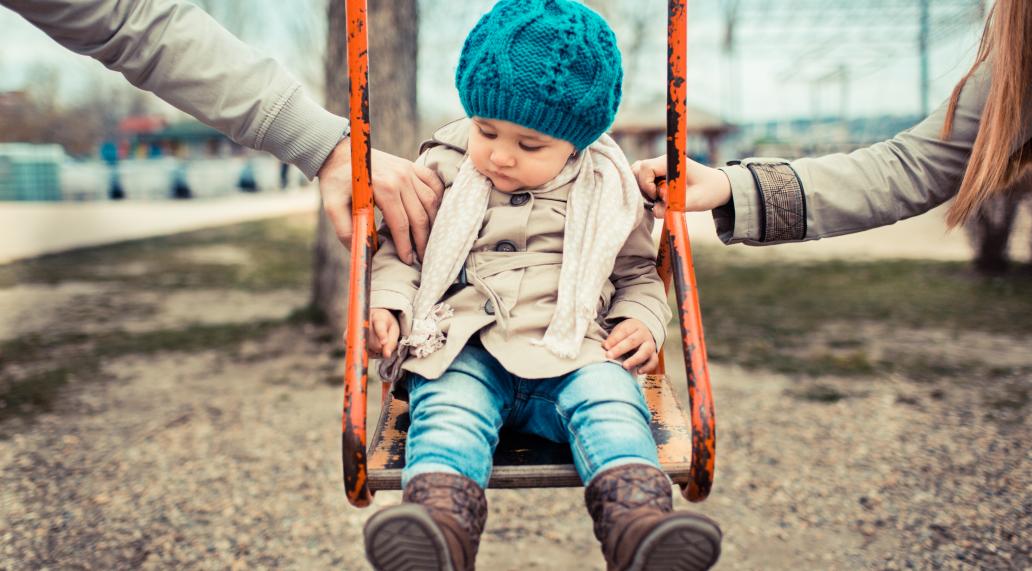
Apartment, finances, anger, and pain – a separation brings many aspects with it that need to be dealt with. Often, this leads to a feeling of helplessness and being overwhelmed. But when children are also involved, it can become a particular challenge for parents. A separation means not only a big adjustment for the parents themselves but also for the children. The entire daily routine changes abruptly: Mom and Dad suddenly live in two different places, there are no more shared lunches or family time, and family celebrations and vacations have to be planned entirely differently. During a separation, couples are very focused on themselves; they have to reorganize their whole lives, revise future plans, and sort out finances. Added to that are disappointment, frustration, and self-doubt. During this time, parents are completely occupied with themselves and often forget that the child must also come to terms with the situation.
Corona as a Test of Relationships
A romantic relationship can be quite conflict-laden even under normal circumstances, but in exceptional situations, it is put to an even greater test. During the COVID-19 pandemic, many couples had to make a real effort to maintain their relationship. Many partnerships found it difficult to cope with the extreme conditions and suffered greatly, as evidenced by the significantly higher separation and divorce rates in 2020. The number of inquiries to couples therapists and lawyers also rose sharply after the first lockdown.
The reasons are manifold, as the Corona situation suddenly creates entirely new conflict issues. The increased daily burden from homeschooling and home office, financial insecurity, fears for the future, a higher stress level, and fewer spatial alternatives put many couples under pressure and are a real test of endurance for the relationship. Even the divorce or separation phase itself is further complicated for those involved by limitations in finding housing, lack of distractions when the child can no longer attend daycare or school and must be cared for at home, visits to therapists or lawyers being replaced by phone calls, and when the divorce process in court is delayed due to Corona restrictions.
Stay together just for the sake of the child?
Many couples face the question of whether they should stay together for the sake of the child before separating. The answer is not easy, because of course, one does not want to tear the family apart and wants to spare the child the suffering that one has to cope with oneself. Children generally suffer more from a separation than the parents themselves, yet it is better not to pretend a "pseudo-family life" for them, as that usually works out poorly. Children have keen "antennae" and can sense when something is wrong, but they cannot express it outwardly. It can become a significant burden when parents no longer communicate or constantly argue and then do not reconcile. Children can hardly handle this, which is why parents should not remain in an unhappy partnership just for their sake.
Consequences of a Separation for the Child
A divorce or separation of parents can affect a child very differently. This depends, among other things, on age, siblings, and the nature of the relationship with the parents. For only children, a separation is often harder to cope with because they don't have a "fellow sufferer," and especially younger children may not yet understand the causes and significance of the separation or find it difficult to comprehend.
Very often, children blame themselves for a separation. They react with significant insecurity, suffer from anxiety and feelings of guilt, and may revert to earlier behaviors like aggression, destructive behavior, and bedwetting. Others, however, withdraw, exhibit depressive behavior and apathy. Other consequences of the separation: In daycare or school, the child may not want to separate from the parent, act strangely in the presence of other parents, develop a defensive attitude, and seek increased emotional support from other caregivers.
If a parent moves out, it is particularly problematic for children. They initially feel abandoned and lose a figure of identification in their home. They perceive the separation as a kind of withdrawal of love and react with shock, pain, fear, fear of loss, sadness, and withdrawal. Their trust in relationships is shaken as a result.
What you can do to help your child cope better with the separation Unfortunately, a divorce or separation never leaves a child unscathed, but there are some considerations that can help make the situation more pleasant or bearable. So how do you best tell your child that everything will change? First of all, it is important to prepare your child for the situation and express your concerns concretely. Especially younger children generally cope better with a clear step if the decision doesn't come unexpectedly. So, do not leave your child in the dark; instead, create a sense of security by speaking calmly and in clear, simple words. Do not use too many details to avoid overwhelming your child. Ideally, parents should deliver the message together, but only if there is no risk of arguing during the conversation. In such a case, only one parent should talk to the child.
If you have made the separation official, it is important to be patient with your child and their reactions. Do not exert pressure, but do not lose sight of your child and take conscious note of how they behave during the separation phase. As soon as one parent moves out, try to make the goodbye as easy as possible for your child by clearly explaining where each parent will live and in what situations he or she will be involved in their life, for example, picking up from school or daycare and being present at events such as soccer games or performances. Children worry about their parents, so it is important to let them know that both parents are doing well despite the separation and that they are safe – albeit in different places. If possible, both parents should continue to play a role in the child's life, because at least until school age, it is important for development that both mom and dad are there as contacts.
In the long run, regular conversations about the current situation and continued observation of your child's behavior help. Take regular time to do something nice together and strengthen the relationship with your child. However, do not unload your own feelings and problems onto your child, as they are not a substitute for an adult conversation partner and also not a messenger, informant, or confidant. No matter what your relationship with your ex-partner is: Do not ask your child to take sides. If possible, try to see your ex-partner solely as a parent and, in the long term, return to healthy communication.
Communication is also the key word for your child: Be sure to involve them in the separation process and ask clearly formulated questions, such as: "Do you want to see mom/dad only on weekends?" or "Do you want to leave your craft supplies at mom's/dad's?" Keep accusations against your ex-partner to a minimum during joint conversations and work towards your child's best interests. Keep your personal anguish largely away from them and try to process it for yourself first. This way, your child won't feel the pressure to have to take care of you. For younger children, it's beneficial for parents not only to respond to the child's wishes but to jointly find sensible arrangements in the child's interest.
And after the separation?
The biggest point of contention during and after a separation or divorce is often finances. Clarify these as soon as possible in a fair and amicable manner. If both parties are interested in an amicable solution, mediation can also help. If you cannot reach an agreement among yourselves, a lawyer or the court can also be consulted. However, be aware that this can involve significantly more costs and time. Agree with your ex-partner on a framework of what your child is allowed to do with which parent and what not. You should coordinate, but you do not necessarily have to set the same rules. Children can indeed cope with different conditions. The important thing is: The child should not become the focus of a competition for the best parent. You do not have to prove that you are the "better" parent. This also reduces the risk of your child playing you off against each other.
Even though separations cannot be generalized, most children find a new balance after about two to three years. Generally, they cope better with the situation, the better the parents do as well.
May I get some help?
Yes! A separation requires a lot of strength and it is absolutely not a weakness to seek support from outside. Those who are not mentally and physically able to have enough energy for their parental duties can temporarily ask family, friends, and neighbors for help. In many cases – and especially in view of the current Corona situation – it may be sensible to seek additional professional help from psychologists, therapists, and childcare providers to make the situation as little burdensome as possible for all involved.
famPLUS - Together for your personal PLUS!
Text: Esther Marake


